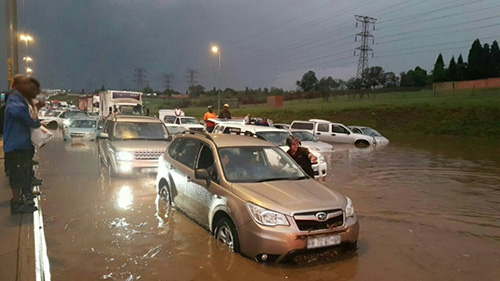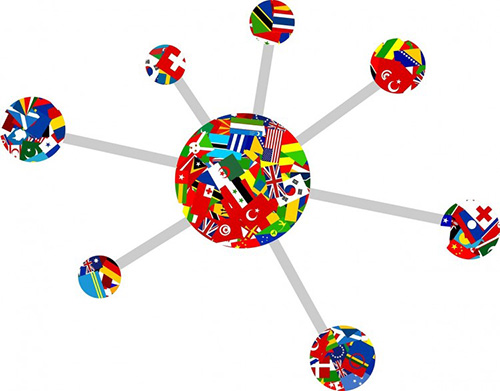 Source: Political risk, cyber risks, bribery, and oil price and financial market fluctuations will be some of the hurdles faced by businesses in the coming year. (Image: Pixabay)
Source: Political risk, cyber risks, bribery, and oil price and financial market fluctuations will be some of the hurdles faced by businesses in the coming year. (Image: Pixabay)
“Twenty-seventeen is undoubtedly the year where political risk on the global scale will be the one to watch,” says Nicola Crawford, IRM chairperson.
The institute is a leading global professional risk management body, based in London, which provides internationally recognised qualifications and training, provides research and guidance, and sets professional standards.
“The risks in South Africa are no different,” says Hollard Broker Markets’ legal and compliance expert, Danny Joffe. “South Africa faces its own political risk and is directly influenced by oil price fluctuations. We also have a very volatile currency and a sophisticated finance industry just as vulnerable to cybercrime as anywhere else.”
Cyber risk
Cyber risk has been a growing threat, and it's unlikely cybercriminals will take 2017 off. Things will probably get worse, especially as the Internet of Things means that more and more often goods such as cars, televisions, fridges and the home are automated or controlled by phone. The upsides are obvious, but the downside is that there is more for hackers to target.
The internet has also increased South Africans’ vulnerability to events elsewhere. Last October Twitter, PayPal, Netflix and Spotify – online companies many South Africans subscribe to – were all taken down by a major cyber attack. In May South Africa-based Standard Bank was the victim of fraud amounting to around R300 million in an attack a Japanese report linked to hacking. The bank confirmed the fraud, and that it expected to lose around R300 million, but not the mode of attack. These attacks cause downtime, share price drops and reputational damage.
Governments the world over, including South Africa’s, are devising strategies and promulgating legislation aimed at protecting against cyberattacks. South Africa’s Protection of Personal Information Act (POPI) was promulgated in 2013 and last year the government appointed a regulator. Cybersecurity firm LAWtrust’s privacy specialist, Advocate Rian Schoeman, says it’s likely POPI will be operational around May this year.
POPI requires that the personal information any institution handles is protected and that these institutions be able to prove they have taken steps to protect this type of information. This is great news for consumers, but it means businesses and other entities that deal with personal information – also of employees – will have to take cybersecurity very seriously, very soon.
“Cybercrime has become completely international given the nature of the internet, and the way computer systems are linked,” says Joffe. “Many businesses that are hacked for their client information or simply to bring their operations to a halt are hacked from abroad.

Cybercrime has become completely international, says Hollard Broker Markets’ legal and compliance expert, Danny Joffe. (Image: Pixabay)
“The financial services industry is at particular risk, given that they host so much personal information. This type of crime does not just apply to large computer systems – smaller devices such as mobile phones and iPads are also at particular risk. No one is safe. We’ve seen even the most sophisticated cybersecurity systems being hacked into, such as United States political parties.”
Joffe says new hack-proof cellphones are being developed, as are special flash drives that render your computer a “dumb terminal”.
He also raises that, in South Africa, POPI’s implementation date has not yet been promulgated but when it is there will only be 12 months’ grace for full compliance. “With cybercriminals becoming so advanced, that is very worrying for insurance companies."
Flooding and increasingly unpredictable weather
First, there was the drought, which caused terrible losses across South Africa, then the summer rainfall areas got rain and, on 9 November last year, flash floods caused huge damage in Johannesburg. A flurry of insurance claims ensued.
Joffe says the flash flood Johannesburg suffered in November 2016 was “very costly”, financially and in terms of the work it caused. Special assessment centres had to be set up, mostly to look at vehicle damage and costs were calculated at more than R100 million by January 2017.

In November 2016 Johannesburg experienced flash floods that caused more than R100 million in damages. (Image: Twitter)
Experts tell us that the weather is increasingly unpredictable and that climate change will probably make that worse. That makes insurers’ lives more difficult – we rely on being able to predict risk.
Corruption and bribery
While the perception is that corruption and bribery have been increasing in South Africa for a long time, Transparency International’s scoring of the country between 2012 and 2015 shows a slight improvement between 2012 and 2014, but no change between 2014 and 2015. South Africa’s score – of 44 – is low, and a corruption-free score of 100 is elusive to all.
In the organisation’s 2016 report (in which the statistics for 2015 were released), the organisation said corruption is “rife” globally, although more countries improved their scores than declined.
The good news is that South Africa is better placed than many other African countries to tackle corruption, with 13 public sector agencies that each have a particular legal or policy role in fighting graft. We also have a National Anti-Corruption Task Team and policies, standards and legislation in place. Implementation, however, is not always up to scratch.
Oil price and market fluctuations
While oil prices have stabilised around the $45-$50 mark for the past six months, forecasting the price is proving almost impossible. One man’s oil price crisis is another’s opportunity, but fluctuating oil prices make it difficult to plot your business year.
The JSE is notoriously up and down too, often due to the volatility of our currency. South Africa’s businesspeople are kept on their toes.
Supply chain risks
Trends towards globalisation, outsourcing, offshoring and specialisation have added complexity and uncertainty to supply networks. Social media and the internet have made reputation management in this area more complicated too – and companies are also increasingly held responsible for the actions of their suppliers.

Trends towards globalisation, outsourcing, offshoring and specialisation have added complexity and uncertainty to supply networks. (Image: Pixabay)
Insurance companies rely strongly on the services of their repair and replacement agents, says Joffe. He gave as an example, a panel beater that negligently got something wrong while repairing a vehicle that caused a later accident or injury, for which the policyholder could hold the insurer jointly responsible with the panel beater “in the court of public opinion”, regardless of the agreement between the insurance company and the panel beater.
The first step to managing these risks is understanding them, says the IRM. “We would expect to see a rising interest in mapping, quantifying and modelling risk exposures beyond simple supply chains to the complex enterprises that deliver goods and services across the world today.”
Political risk
Change is always with us, but 2016 brought some changes many in business did not expect – the most obvious and important being Brexit, the United Kingdom’s vote to leave the European Union, and the United States’ election of Donald Trump as president. Both of these events have global consequences that will extend to South Africa, in trade and in aid.
Here in South Africa, the ruling African National Congress has its elective conference at the end of the year, an event that will determine the fate of our president, Jacob Zuma, and much more beyond that.
And, finally...
“In 2017, when the political and economic landscapes are as uncertain as ever, the need to prepare is critical,” says Geoff Trickey, a psychologist who is also an affiliate member of the IRM.
Trickey says it is not estimating the probability of a risk that is difficult, it is predicting when it will strike. That means businesses need to prepare and so reduce the possibility of a hit, and the consequence when a risk does hit. And that is where an insurer such as Hollard comes in, with its focus on helping the insured mitigate their risk, both in reducing the likelihood of an event happening and in insuring against it.
Hollard’s Joffe says similar. “In property, there’s the maxim location, location, location. For us, it’s prepare, prepare, prepare. Insurance is there to save you when things go wrong, but you can minimise the impact if you anticipate and prepare.
“Hollard understands that our world is constantly changing,” says Joffe. “Our products, ways of contracting and systems need to change with it. Claims are on the rise, and so, through procurement, sound underwriting and risk improvement, smart reinsurance deals and the use of mitigation technology, an insurer can offset these losses that were not experienced before.
“It’s an exciting world, the insurance world, and one needs to keep one step ahead.”